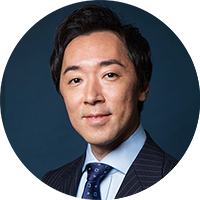Coach's VIEW is a business column authored by executive coaches in COACH A, aimed at providing valuable insights and effective approaches for leveraging coaching to foster organizational and leadership development. The column draws on the latest coaching trends and data, as well as insights from notable global publications on coaching.
The Adventurous Spirit that Lies within Us

When was the last time you had an adventure?
If you look up the word "adventure" in the dictionary, you will find that it means "to take risks; to dare to do something that is not certain of success."
As COVID-19 has spread around the world, our actions have been limited. All we see through the media on a daily basis are news that stimulate our risk-averse thinking. In this situation, it is necessary, but we are also expected at the same time to not only avoid danger and restore the status quo, but also envision a new future.
The Adventures of Homo Sapiens
About 30,000 years ago, it is supposed that the first humans arrived in the Ryukyu Islands of Japan from Taiwan. 30,000 years ago was still in the Paleolithic Era. How did our ancestors cross the Kuroshio Current, which is said to be the largest ocean current in the world, and arrive in the Japanese (Ryukyu) archipelago at that time?
In order to solve this mystery, a team at the National Museum of Nature and Science, led by Yosuke Kaifu, launched a project over six years to reconstruct the 30,000 Year Voyage. (*1)
Using materials that could be sourced in Taiwan and using only the tools available at the time, they built a ship and tried to demonstrate whether it was really possible to cross the Kuroshio with human power alone. Interestingly, by experiencing the same process as the people of that time, they not only understood the difficulties of the voyage, but also tried to understand the background of why they went beyond such difficulties and risked so much to reach the Ryukyu Islands.
Representative Yosuke Kaifu says that there are two possibilities for the background. One is that they got tired of the place they are living in now and wanted to move. The other is pure curiosity about the island they could see across the sea. Kaifu says that it was probably both.
The curiosity of going to an island in the distance, or climbing a mountain because there is a mountain in front of you, is a characteristic of Homo sapiens. This is how our African-originated ancestors spread around the world, and it is said to be unique to our species.
Novelty Exploration
The brain has a novelty-seeking tendency to try new things, even if it means abandoning its previous stability. Genetically, the more bases are repeated in the gene for the fourth dopamine receptor, the stronger the "novelty-seeking tendency" is, while the lack of serotonin increases the "damage avoidance tendency".
According to brain scientist Kikunori Shinohara, only 7% of Japanese have a strong "novelty-seeking tendency" and 98% have a strong "damage aversion tendency". Among Americans, 40% have a strong tendency to seek novelty and 40% have a strong tendency to avoid damage. (*2)
Perhaps Japanese are genetically predisposed to avoid adventure.
My former boss, an American executive officer, would often urge his Japanese team to keep bringing in new technology and suggesting it to customers. This was a common scenario where the Japanese were hesitant to use technology that was not guaranteed to work, , because they thought it would be a problem for the customer if it failed.
An Adventurous Organization
Among the lessons taught by the Danish philosopher Søren Kierkegaard, there is the fable of the wild duck.
Every winter there was a man who fed the migratory ducks that came to the area to overwinter. Some of the ducks would eat the food the man gave them and spend the whole year in the area. After three or four years, the ducks couldn't fly at all.
Kierkegaard's lesson is that you can tame a wild duck, but you can never return a tame duck to the field.
This lesson was treasured by IBM's first president, Thomas Watson, and is said to have influenced Steve Jobs (*3).
On the flip side, are we taming employees who love adventure, employees who can cross oceans like wild ducks, to fit our mold? If we want our employees to be more adventurous, we first need to check that we are not trying to tame them and that our organization's culture is not taming them. We may have unknowingly clipped the wings of our employees.
It Awakens the Adventurous Spirit that Lies within Us
Pre-calculate risks and systematically avoid them. Increase the amount of things we can control. As we grow up, we have been taught and learned that this is how it should be.
The bigger our goals are, the more we calculate the risks and ask ourselves what it means to do them, and as a result, the more we put the brakes on ourselves.
Yosuke Kaifu says, in the last chapter of The Landing of Sapiens in Japan,
"How much effort and time do humans spend on things other than what is needed to sustain life and inherit life?'
(Omission)
Apparently, that is the reason why Homo sapiens are Homo sapiens. In the eyes of the other animals on the planet, we are a unique species of beings who are passionate about things that we do not have to do, (*1)
When you have a challenge ahead of you, why don't you start off with these questions:
How can we get there?
How do we get it?
How can we do it?
Just as you did when you were a child.
Let's be passionate about things we do not have to do at first glance. Maybe that's the essence of adventure.
[Reference]
1 "The Landing of Sapiens in Japan" by Yosuke Kaifu (Kodansha)
2 "What I Wish I Knew When I Was 20" (CCC Media House) Tina Seelig (Author) Yuko Takato (Translation)
3 "The Words of Watson, Jr. that Made IBM a Global Company" (Eiji Press) Thomas J. Watson, Jr.
*Regardless of profit, non-profit or intranet, secondary use such as copying, diversion, selling etc. is prohibited without permission.
Language: Japanese

